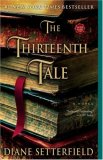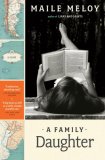Summary | Excerpt | Reading Guide | Reviews | Beyond the book | Read-Alikes | Genres & Themes | Author Bio

A dramatic, atmospheric novel in a grand storytelling tradition, The Sisters Mortland is beguiling, complex, hauntingly sad, and often dazzlingly funny. A tour de force of tales within tales, it sets the capstone on bestselling author Sally Beauman's literary career.
"If I didn't spy, I'd be in the dark eternally. I live in a maze of
unknowing - Maisie's maze - and I hate it. I need to be informed."
Summer 1967: Thirteen-year-old Maisie is at her family's home, a decaying
medieval abbey in the heart of rural Suffolk. Lucas, a student and friend, is
painting a portrait of Maisie and her older sisters, Julia and Finn. In turn,
Maisie embarks upon a portrait of her own: She begins an account of her family
and of a summer in which their lives will irrevocably, and terribly, change.
She introduces us to arrogant, beautiful Julia; to intellectual, magnetic
Finn; to honorable, conventional Nicholas, a neighbor training to be a doctor;
and Gypsy-blooded Daniel Nunn, a village friend to the sisters and a longtime
idol of Maisie's.
More than twenty years later, Lucas's now-famous portrait of the three
sisters is the centerpiece in a major London retrospective of his work. Daniel,
who's risen from rural poverty to a wealthy but soulless and troubled London
existence, finds himself still obsessed with the three sisters and haunted by
the summer of 1967. Now he embarks on a journey to understand what happened to
their lives - and seek redemption for his own.
A dramatic, atmospheric novel in a grand storytelling tradition, The
Sisters Mortland is beguiling, complex, hauntingly sad, and often dazzlingly funny. A
tour de force of tales within tales, it sets the capstone on bestselling author
Sally Beauman's literary career.
The best person to describe The Sisters
Mortland is the author herself; to quote her essay (which you can read in
full at BookBrowse): "Maisie, who begins the novel is an outsider, a strange prescient
thirteen-year-old child - a little girl who talks to the dead, but a girl with a
tough, ascerbic mind. Maisie lures the reader in -- I intended a lure -- to what
may seem at first another assay at a familiar form, the English country house
novel -- a genre with a long tradition, Mansfield Park being at one end of it,
and Ian McEwan's Atonement at the other. Maisie's story, her account of that
summer, of her family, of the strange house in which they live (it's a medieval
Abbey, a former nunnery) and of the portrait an artist friend is painting forms
the first part of the novel. She describes her two sisters, clever, evasive Finn
and beautiful self-centred Julia, and she struggles to understand the young men
staying at the house who are irresistibly drawn to them. But I wanted the reader
to see gaps; I wanted readers to decide whether the persuasive Maisie was
telling the truth. Like Lucas, Maisie is also painting a portrait of three
sisters -- but what does she reveal, and conceal?
Then the novel takes a a sudden unpredictable turn. It breaks with the
conventions it seemed to be following, it hurtles off-piste -- there's a
substantial time-jump, and I introduce a second voice, that of a man, Daniel
Nunn. Dan, a friend of the sisters since early childhood, and worshipped by
Maisie, has grown up in the same village but in very different circumstances. He
is of Romany descent; his father is a farm labourer, and his grandmother, who
brought him up, and claims to have second sight, works at the Abbey as a cleaner
-- but Dan, who has won a scholarship to Cambridge, is on the cusp of change,
about to abandon his home, his family and his class."..continued
Full Review
 (573 words)
(573 words)
(Reviewed by BookBrowse Review Team).
About the author: Sally Beauman was born in Devon, England and read English Literature at Girton College, Cambridge where she graduated in 1966. Immediately after graduating, she went to live in America for three years, first in Washington DC, and then New York. During her time there she traveled extensively, visiting most of the states in the union: her experiences in the South in the year prior to the assassination of Martin Luther King, provided some of the background for her first novel, Destiny (1987). It earned her a record sum for a first novel: published in the US by Bantam, it became a New York Times number 1 bestseller, and went on to top the bestseller lists in the UK, Canada, Australia and South Africa. It has ...

If you liked The Sisters Mortland, try these:

by Diane Setterfield
Published 2007
A love letter to reading, a book for the feral reader in all of us, a return to that rich vein of storytelling that our parents loved and that we loved as children. Diane Setterfield will keep you guessing, make you wonder, move you to tears and laughter and, in the end, deposit you breathless yet satisfied back upon the shore of your everyday life...

by Maile Meloy
Published 2007
From the award-winning author of Half in Love and Liars and Saints, a riveting story of love, sex, secrets, guilt, and forgiveness.